
Bar Kokhba is a double album by John Zorn, recorded between 1994 and 1996. It features music from Zorn's Masada project, rearranged for small ensembles. It also features the original soundtrack from The Art of Remembrance – Simon Wiesenthal, a film by Hannah Heer and Werner Schmiedel (1994–95).

John Zorn is an American composer, conductor, saxophonist, arranger and producer who "deliberately resists category". His avant-garde and experimental approaches to composition and improvisation are inclusive of jazz, rock, Jewish music, hardcore, classical, contemporary, surf, metal, soundtrack, ambient, and world music. Rolling Stone noted that "[alt]hough Zorn has operated almost entirely outside the mainstream, he's gradually asserted himself as one of the most influential musicians of our time".

The Big Gundown is the third studio album by American composer and saxophonist/multi-instrumentalist John Zorn. It comprises radically reworked covers of tracks by the Italian film composer Ennio Morricone.

Lacrosse is a double album by John Zorn. It is made up of different takes of his early game piece, "Lacrosse". The first disc is from WKCR in June 1978 where Mark Abbott, Polly Bradfield, Eugene Chadbourne, and LaDonna Smith and Zorn recorded six different takes. Takes 3, 4 and 6 were originally released on the Parachute Records double LP School (1978). The second disc is the original recording of "Lacrosse" which was made by Eugene Chadbourne, Henry Kaiser, Bruce Ackley, and Zorn in San Francisco, California in June 1977.
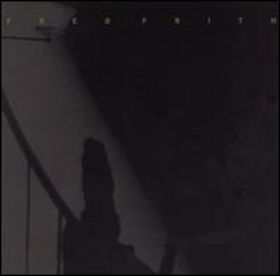
Eye to Ear is a studio album by English guitarist, composer and improvisor Fred Frith. It is a collection of film and theatre music composed and performed by Frith, and was recorded in Germany and the United States between 1992 and 1995. Eye to Ear was Frith's first solo album to be released on John Zorn's Tzadik label.

Filmworks 1986–1990 features the first released film scores of John Zorn. The album was originally released on the Japanese labels Wave and Eva in 1990, on the Nonesuch Records label in 1992, and subsequently re-released on Zorn's own label, Tzadik Records, in 1997 after being out of print for several years.
"For Zorn, filmscores have always been a place to experiment, and the FilmWorks Series is in many ways a microcosm of his prodigious output. This original installment of the FilmWorks Series presents three scores ranging from punk-rockabilly ; a jazzy Bernard Herrmann fantasy; to a quirky classical/improv/world music amalgam for Raul Ruiz's bizarre film The Golden Boat. Zorn's infamous one-minute arrangement of Morricone's classic The Good, The Bad and The Ugly, is included as a bonus track. This is the place where it all began."

The Circle Maker is a double album by John Zorn featuring Zorn's Masada compositions performed by the Masada String Trio and the Bar Kokhba Sextet which was released in 1998 on the Tzadik label.

The Gift is an album by John Zorn released in 2001 on the Tzadik label as the third volume of his Music Romance Series and described as an album "for lovers only".
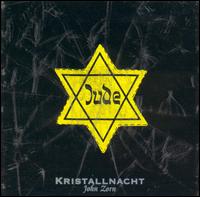
Kristallnacht is the seventh studio album by John Zorn first released in 1993 on the Japanese Eva label and subsequently in 1995 on Zorn's own Tzadik Records label.

Michihiro Sato (佐藤通弘, Satō Michihiro; surname Sato; name sometimes listed as Sato Michihiro;, is a prominent Japanese player of the Tsugaru-jamisen.

Archery is an album by John Zorn featuring his early "game piece" composition of the same name. The album was released by Parachute Records in 1982.
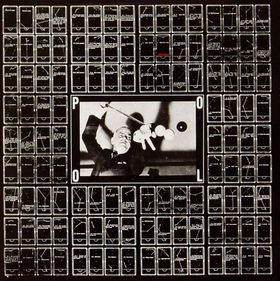
Pool is an album by John Zorn featuring his early "game piece" composition of the same name which was first released on vinyl on Parachute Records in 1980 as a double album including the composition "Hockey". The album was released on CD on Tzadik Records with an additional bonus track featuring a test recording of Archery as part of The Parachute Years Box Set in 1997 and as a single CD in 2000. The album was the first released solely under Zorn's name following his collaboration with Eugene Chadbourne, School (1978).

Locus Solus is an album of improvisations by John Zorn and other musicians. Originally released as a double vinyl album on Rift records in 1983 it was re-released as a CD with additional tracks on Eva/Wave in 1990 and on Zorn's Tzadik Records label in 1997.

The Classic Guide to Strategy is a compilation album by John Zorn featuring his two early solo records The Classic Guide to Strategy Volume One (1983), (tracks 1-2) and the Classic Guide to Strategy Volume Two (1986), (tracks 3-8). The albums were first released on vinyl on Lumina Records in and later re-released on Tzadik Records in 1996 as a single CD. The second track is inspired by the work of Carl Stalling and tracks 3-8 are named after avant-garde Japanese artists. The Classic Guide to Strategy Volume Two also contained the track "Yano Akiko" (5:20) which does not appear on the CD re-release.

Live in Taipei is a double live album by John Zorn's Masada recorded at the Crown Theatre in Taiwan's capital city Taipei. The album is mistakenly dated 1995, while the performance actually took place in 1996.

50th Birthday Celebration Volume 10 is a live album of improvised music by Yamataka Eye and John Zorn documenting their performance at Tonic in September 2003 as part of John Zorn's month-long 50th Birthday Celebration concert series. Guitarist Fred Frith also appears on one track.

The Parachute Years: 1977–1981 is a compilation album 7-CD box set by John Zorn. It features recordings of Zorn's game pieces originally released as self-produced albums on the Parachute label as well as previously unreleased performances. All of the discs in this box set have been subsequently given their own releases on Zorn's Tzadik label.

Masada Anniversary Edition Volume 2: Voices in the Wilderness is the second album in a series of five releases celebrating the 10th anniversary of John Zorn's Masada songbook project. It features 24 compositions by Zorn, each performed by different ensembles.
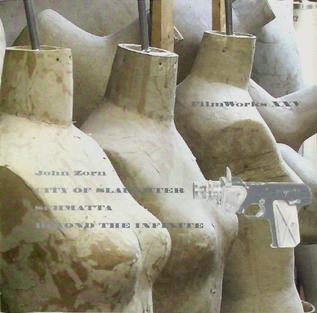
Filmworks XXV: City of Slaughter/Schmatta/Beyond the Infinite is an album of solo piano pieces composed by John Zorn and performed by Zorn, Omri Mor and Rob Burger which was recorded in New York City in 2009 and 2012 and released on the Tzadik label in January 2013. The album was the last in Zorn's Filmworks series.
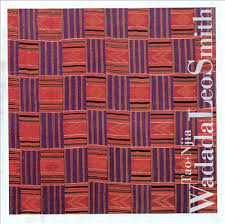
Tao-Njia is a studio album by American jazz trumpeter Wadada Leo Smith which was recorded in 1995 and released on the Tzadik Records' Composer Series.




















